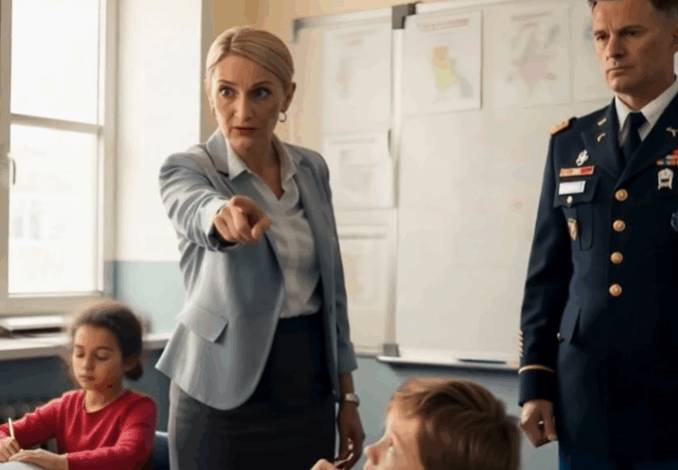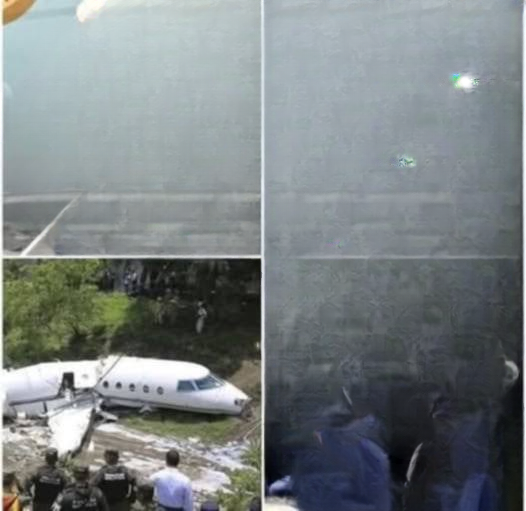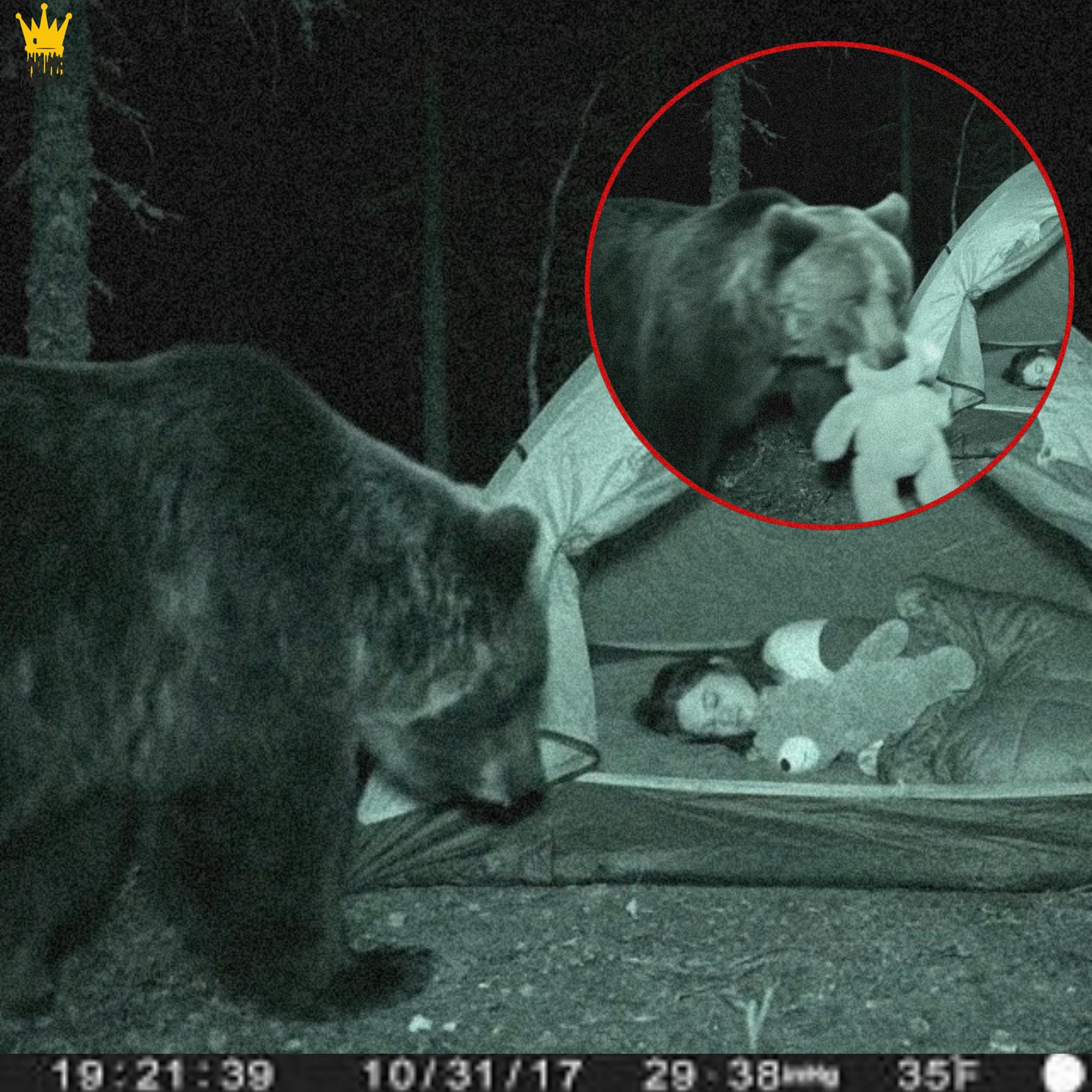The call hit during a briefing that should’ve been uninterruptible. Phones stay silent in those rooms—rank, responsibility, protocol. But Leo has one rule: if he calls three times in a row, I answer. So when my pocket buzzed three times in sharp succession, I stepped into the hallway without a second thought.
The minute I heard his voice, everything else—the brass discussing strategy, the walls of the Pentagon, the weight of the uniform—disappeared. He was in tears, whispering from a bathroom stall, trying not to be heard. Ten years old, usually steady, rarely emotional. And now barely able to talk.
“Dad… she said I was lying.”
Piece by piece, the story came out. He’d shown his class a photo of us from my promotion ceremony. He’d said—proudly, innocently—that his father was a General. And instead of acknowledging it, his teacher brushed him off. Claimed he must’ve misunderstood. Insisted the photo was “just a costume.” When he tried to explain, she cut him off, corrected him in front of everyone, and sent him to the principal’s office for being “disruptive.”
He wasn’t hurt. But he was humiliated.
I could hear him trying to swallow the embarrassment, to act like it wasn’t crushing him. That hit harder than anything else. Kids bounce back from scraped knees. They don’t bounce back as easily from being called a liar for telling the truth.
“Wash your face,” I told him. “Sit tight. I’m coming.”
“My principal said you’re probably busy,” he whispered.
“I was,” I said. “But nothing is more important than you.”
I walked back into the briefing room just long enough to inform my superior I had to leave. One look at my face and he didn’t ask for details.
By the time I hit the parking lot, I’d already shut out everything but the mission at hand. I didn’t change—I didn’t have the emotional bandwidth for that. I got in my car in full Dress Blues, medals polished, ribbons aligned, insignia unmistakable.
People think the uniform is about authority. It’s not. It’s about responsibility. And right then, my responsibility was a ten-year-old boy with tear-stained cheeks sitting in a school office, trying to understand why an adult didn’t believe him.
When I walked into the school, the front desk staff straightened up reflexively. I’m used to that reaction, but I wasn’t there to impress anyone. I asked for the principal, and within minutes we were walking down the hallway toward Leo’s classroom. Every student we passed fell silent. Teachers stopped mid-sentence. Shock tends to do that.
Outside the classroom door, the principal said softly, “She didn’t mean harm. She assumed—”
“She assumed wrong,” I said, not unkindly. “Let’s fix it.”
The classroom door opened. Twenty sets of eyes locked onto me. The teacher froze, her face draining of color. She knew instantly. Recognition hit her like a tidal wave—my uniform, the insignia she’d insisted didn’t exist, the reality she flat-out denied in front of an entire room of children.
She tried to speak, but her voice faltered. “I… I didn’t realize…”
I didn’t raise my voice. I didn’t need to.
“My son told you the truth,” I said, keeping my tone even. “He showed you a photo taken at my promotion. You dismissed him. You embarrassed him. And then you punished him for defending himself.”
Her cheeks went scarlet. The kids watched silently, wide-eyed.
“I made a mistake,” she finally said, turning to the class. “A big one. I should have listened. I should have believed him. I’m very sorry, Leo.”
My son, eyes still rimmed red, nodded with a quiet grace I didn’t possess at ten. “It’s okay,” he said softly, even though it hadn’t been okay at all.
I rested a hand on his shoulder. “Come on, kiddo. Let’s head home.”
As we walked out, something shifted. The other students sat up a little straighter. Some looked at Leo with a kind of awe, others with newfound respect. Not because of me—because he’d been telling the truth all along, and now everyone knew it.
Once outside the building, Leo slipped his hand into mine. “Dad?”
“Yeah, buddy.”
“Thanks for coming.”
“You called,” I said. “I’ll always show up.”
We didn’t talk much on the drive home. He stared out the window, letting the weight of the day dissolve bit by bit. I could see the moment the shame in his posture faded and his head lifted again. Kids shouldn’t have to learn so young that adults can be wrong—but if they do, they should also learn their voice matters.
Inside our home, he dropped his backpack, pulled out the same photo that started everything, and handed it to me.
“I wasn’t wrong,” he said quietly.
“No,” I told him. “You weren’t. And when someone doubts you, you speak up. I’ll handle the rest.”
Later that evening, after Leo fell asleep on the couch watching cartoons—exhausted from the emotional rollercoaster—I sat alone for a long moment. The Pentagon, the meetings, the medals… none of it felt particularly important compared to what happened that afternoon. I’ve led troops, sat through classified briefings, made decisions that kept people safe. But no mission felt as urgent or as clear as walking into that school in uniform to put my son’s world back together.
The next morning, the principal called to assure me the teacher would undergo additional training. She apologized again, more formally. I accepted it. Mistakes happen; people misjudge, assume, misunderstand. What matters is that it doesn’t happen again—not to Leo, not to any kid.
Before school, Leo looked at me over his cereal and said, “Dad, I’m not scared to go back.”
“That’s good,” I said.
“It’s because you came,” he added.
And that—that right there—was everything.
The truth is, some days I make decisions that ripple across nations. Some days I lead teams that hold critical responsibilities. But the most important mission I’ve ever had is raising a boy who trusts that when he calls for me, I’ll answer—no matter where I am, no matter what I’m doing.
Because being a General matters.
But being Leo’s father matters more.




